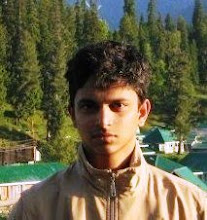Soprano Patricia Rozario, tenor Alistair Digges and baritone Dhilan Gnanadurai perform in Goa
Nigel Britto
Donizetti, Rossini, Cimarosa. Sicilian mafia dons? Not quite. In fact, they’re legendary Italian composers whose works featured in the concert "An Operatic experience" on Saturday night at Kala Academy. The performance was the last stop of British soprano Patricia Rozario’s tour of India. And it was phenomenal.
After having performed similar shows in Delhi, Pune and Mumbai, the much-awaited recital got off to a rousing start with tenor Alistair Digges tackling the aria "Where ‘er you walk", from Handel’s 1744 oratorio Semele. As Jupiter, the 27-year-old defied his rather lean physique to create a perfect intonation that resounded through the DMK auditorium. A thunderous applause then greeted Rozario, Goa's most famous classical music exponent, who walked out on the stage to perform the famous aria "Endless pleasure, endless love", also from Semele. Accompanied by Mark Troop, her interpretation was masterful and hypnotic.
Few classical concerts are complete without Mozart. "The Magic Flute", which was composed to a libretto by Schikaneder, featured baritone Dhilan Gnanadurai playing the role of Papageno, a bird-man flute-player who wondered when he'd catch his bird-woman, Papagena (Rozario). The last aria of the opera was the very humorous duet pa, pa, pa, which brought smiles and a lot of enthusiastic clapping, especially from the children.
The evening also featured the Italian romantic composer Giuseppe Verdi, who's generally regarded one of the greatest opera composers alongside Giacomo Puccini. In Rigoletto, baritone Gnanadurai matched Rozario almost note-for-note in a duet, displaying tremendous power and technical ability in doing so. The award-winning Sri Lankan musician, who holds diplomas in three different disciplines (voice, piano, violin), was a crowd favourite. Popular aria Caro nome, which came next, brought out Rozario's full range and virtuosistic breath-control, which left the audience begging for more.
The second half was an Italian invasion. In Cimarosa's Matrimonio Segreto, Digges and Rozario played two lovers (Paolino and Carolina) whose clandestine meetings got interrupted when people unexpectedly turned up at them. Predictably, the unusual story brought smiles. It was followed by five consecutive works of Gaetano Donizetti, including his most famous and recognizable work, Una furtive lagrima.
Though Rozario was undoubtedly the centre of attraction, it was the supporting artistes who impressed many. Digges and Gnanadurai, both of whom are in their 20s, appeared well up to their challenging task and took on their formidable roles with panache. Digges, especially, who idolizes Pavarotti, displayed tremendous maturity in the varying roles he played, from torn lover (Handel's Semele) to a hero who desires an abducted slave-girl (Ambroise Thomas' Elle ne croyait pas, from his opera comique Mignon).
The last piece was Gioachino Rossini's La Danza, which featured all the three singers at the heights of their vocal power. The song expectedly ended with a long standing ovation that forced all the performers back for an encore. This time, it was a song from the popular musical West Side Story.
August was a month of classical concerts in Goa. And many believed the best was saved for last. Musicians and others alike were left "dumbfounded". "It was Fantastic!", said Savio Martires, a prominent jazz musician, adding "this is probably the first time Goa has seen something of this calibre". Builder Philip Braganza agreed. "I've never heard anyone sing this well, ever", he said. Many shared their views.
But as much as the concert was described as "phenomenal" by a majority of those who attended it, all was not rosy. The persistent and unpredictable rains partially affected attendance. And despite strict instructions to the contrary, mobile phones rang and cameras clicked.
Also, several people in the fraternity were peeved by the "only 3/4ths full" hall, while others saw it as a sign of hope. Luis Dias, a doctor and violinist, is one of the hopeful ones. "It would be great to see a packed auditorium to watch a daughter of the soil who is an internationally acclaimed opera star", he said. Unfortunately, it didn’t happen on Saturday. May be next time. Until then, as they say in Italian, arrivederci.
This review was first published in the Sunday Times of India, Goa, on the edition dated August 30, 2009.

No comments:
Post a Comment